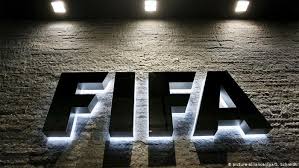January 19 – FIFA has issued a report on the reforms it has undertaken to the player transfer system since 2017, but has emphasised that it has a “commitment to constantly adapt the regulatory framework to the current reality of football and the transfer system”.
Victor Montagliani, Concacaf president and FIFA vice-president and chair of the Football Stakeholders Committee, said: “FIFA remains focused on accomplishing the final steps of this process, as planned with the various stakeholders, and continues to be mindful of changes within the football ecosystem in order to be ready to adapt and modernise its rules accordingly, all with the ultimate goal of creating an even better and truly global game.”
While FIFA under president Gianni Infantino has made moves to spread the wings of its sphere of influence, competition and commercial propositions in multiple directions, the work of the Stakeholders Committee is very much at the coalface of the football business.
The process of reforming the transfer system began in 2017 and was the first attempt as a wholescale review of practices and regulations since 2001.
“Modernising football’s regulatory framework and increasing transparency, integrity and fairness within the transfer system has been one of FIFA’s key pillars since the launch of FIFA 2.0 in late 2016, and it is also the first objective of the FIFA Vision 2020-2023,” said FIFA.
Conducted with input federations, the ECA, FIFPRO and World Leagues Forum, the reforms make significant in-roads into key areas. Criticism has been made that agent reform in particular doesn’t go far enough, and in particular when it comes to agents representing multiple parties in a deal.
It is likely there will be more reform of agent regulations with the reforms being seen by some of those in the discussions as only a first step. What the reforms have done is establish a new regulatory framework for football agents, and provided basic ethical and professional standards guidelines as well as protection for players and agents in what is often an unsavoury deal-making business.
FIFA points out that the reforms build in many other reforms that will automatically impact on the agents’ role and how they conduct themselves. FIFA highlights key reforms including:
- Further protections for players who are mistreated by their clubs, including the codification of further just causes for players to unilaterally terminate their contracts, as well as the implementation of compulsory consequences for parties that fail to comply with a decision of a FIFA body to pay a sum of money
- Protections and guarantees for female players who are pregnant or give birth while under contract
- The FIFA Clearing House to process payments, promote financial transparency and raise governance standards
- A regulatory framework for coaches, providing the same minimum protections as those in place for players
- Further protections for minor players, including the first-ever regulatory framework for trials with rules concerning medical care, minimum age and an effective way to seek legal protection, while also implementing a more stringent regulation in relation to private academies to increase oversight of minors, and the modernisation and more flexible application of the humanitarian exception to reflect real-life cases
- A new, streamlined decision-making body, the FIFA Football Tribunal, which dealt with more than 14,000 disputes and regulatory applications in its first year of operations
- A new regulatory framework for loans to protect youth development, promote competitive balance and prevent the hoarding of players
- The FIFA Fund for Football Players to compensate players whose clubs are declared insolvent, liquidated, subject to bankruptcy proceedings, or have been disaffiliated from organised football. A total of USD 16m had been allocated by FIFA by the end of 2022.
To see the full report – The reform of the transfer system 2017-2022 – click here or go to legal.fifa.com.
Contact the writer of this story at moc.l1713904364labto1713904364ofdlr1713904364owedi1713904364sni@n1713904364osloh1713904364cin.l1713904364uap1713904364

